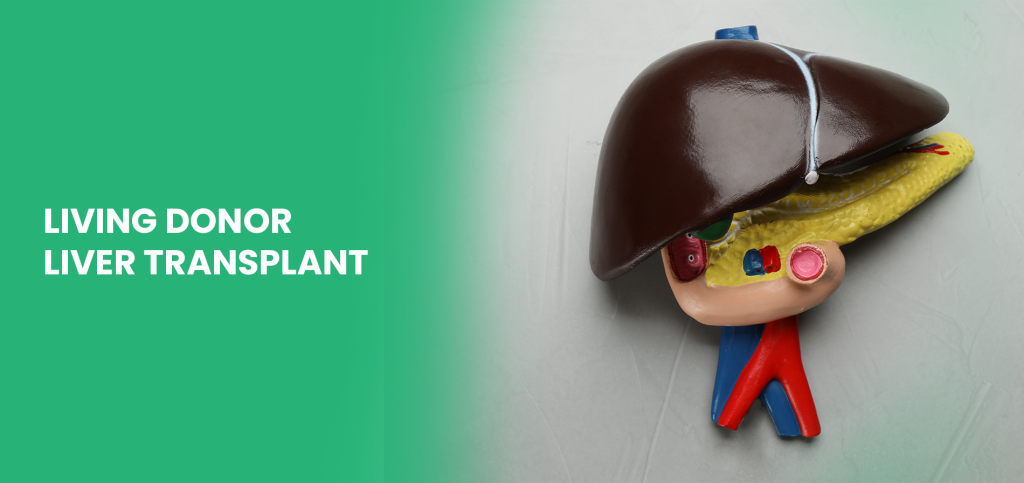
Liver transplant is basically replacing diseaed liver with a new liver. There are many types of liver transplants that are done at Livcure Centre in India that include:
However, living donor liver transplant is the most commonly done liver transplant at Livcure Centre in India. In a living donor transplant procedure in India part of the liver is taken from the donor who has to be a family member or the blood relative of the patient as per the governing rules in India. Although living donor transplant is done in maximum number of cases in India but finding a suitable and fit donor is a big challenge in liver transplant surgery. The most important criteria for a donor is to have the matching blood group. In liver transplant RH typing (positive or negative) does not matter. This precisely means that the blood group of the donor and reciever has to be same or compatible as per the blood group acceptability criteria which is as under:
This is still easier part of the selection the next criteria is that the donor should be in the age bracket of 18 to 55 years and fit. By fit we mean that the liver donor should not be overweight as overwight leads to Fatty Liver, should not have any comorbidity like kidney disease, cardiac problem, viral infections like Hepatitis B, C or HIV. With the kind of sedentary life style of people in India dovetailed with bad food habits, it makes the donor selction for liver transplant surgery in India a tough nut to crack.
Primary legislation pertaining to organ transplant including liver transplant in India is established under Transplantation of Human Organ Act (THOA), which was passed in 1994 and further added with rules in the year 2014. Similar to kidney transplant, rules regrading liver transplant in India are also very clear and tough. There is a committee that approves the donor after doing a due deligence about the relationship with the liver recepient. Donor and recepient for liver transplant in India both need to produce documents to prove their relationship as per the criteria laid down in Transplantation of Human Organs Act (THOA) in India. Blood relatives and family members include:
The main reason behind strict screening of the donor in cases of transplants in India is to avoid making organ donation organ selling. In simple words it is to avoid pressurized donation in lie of monetary benefits to the donor.
In case of international patients only living donor transplant with compatible or incompatible donor is allowed in India. Cadaveric liver transplant for international patient is not allowed in India. The donor and the recepient has to get a No Objection Certificate from their respective embassy establishing their relationship. Even with restriction of Cadaveric liver transplant in India, international patients come to India for liver transplant surgery as India offers big cost advantage over the other western countries in most of the medical treatment.
The condition that may lead to liver transplant includes:
Liver transplant in India might be the only option left for the patient if the disease has progressed into an advanced stage of Cirrhosis. The condition for the transplant is that you can get Liver Transplant done only 6 months after you have quit alcohol.
Liver transplant procedure in India starts with evaluation of the donor and recepient which is done in 4 phases. In phase 1 liver function tests and estimation of liver fat is done. In the next phase doctors from liver transplant surgery team at Livcure Centre in Delhi/NCR would evaluate the liver volumes and the anatomy of liver. In the third phase other body organs are screened for fitness and lastly all the reports of the first three phases are evaluated by the liver trasplant surgeon at Livcure Centre in India along with gastroenterologist and anesthetist. Before the procedure starts atleast 18 units of blood is required to be donated.
The surgery is done under general anaesthesia and takes about 16 to 18 hours which includes donor liver surgery as well as transplant. During the surgery for liver transplant in India a small part of the liver of the donor is taken. The diseased liver of the recepient is removed carefully after clamping the blood supplies to it. Once the liver is removed donor’s liver is put in place of the removed liver of the recepient and connected to blood vessels as well as bile duct. Donor’s liver grows back to its normal size in few months time. The new liver that has been transplanted in recepient starts taking up the normal functioning soon after the surgery. However, after the liver transplant surgery surgery in India patient has to be on certain medications which are given for preventing the rejection of the new liver by the body. These medicines are called immunosuppresants and have to be taken by the patient for the whole life. The cost of liver living donor liver transplant in India ranges between INR 22,00,000 to 25,00,000.

